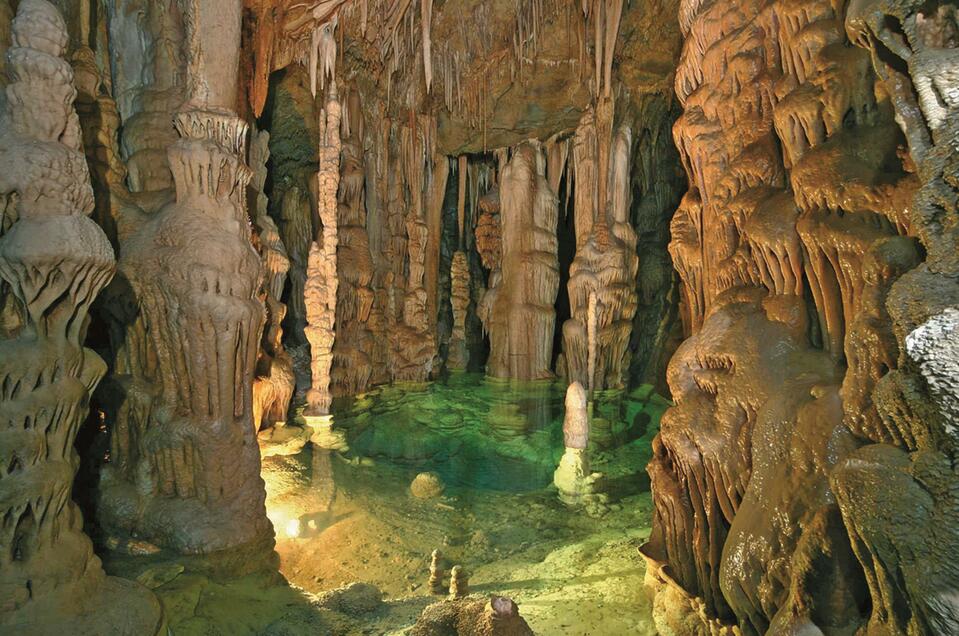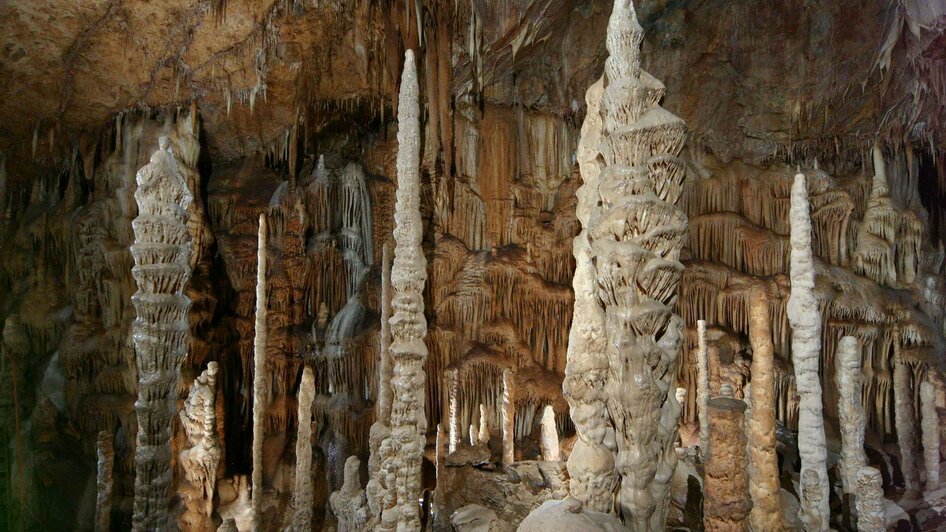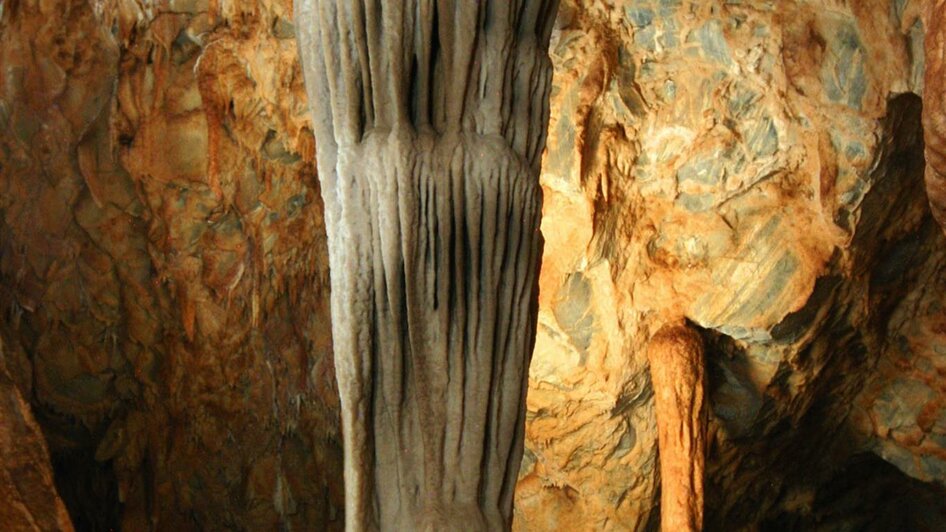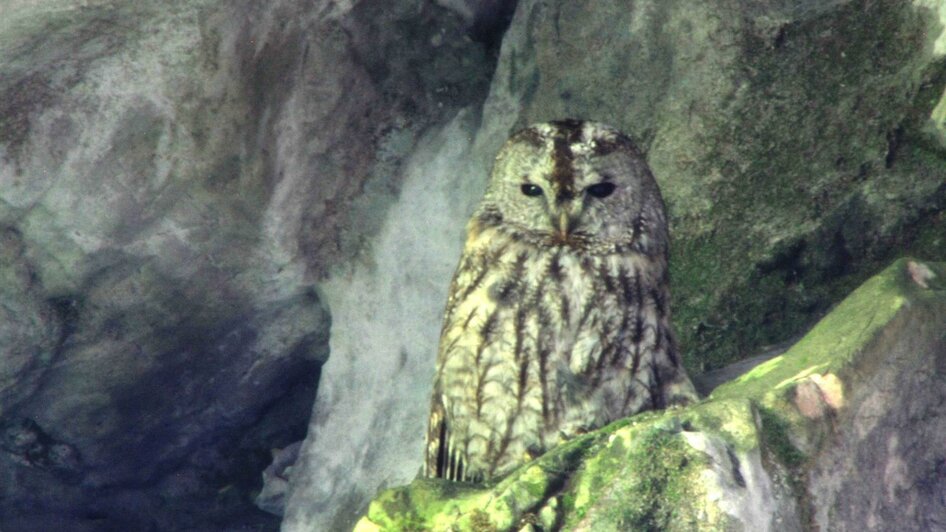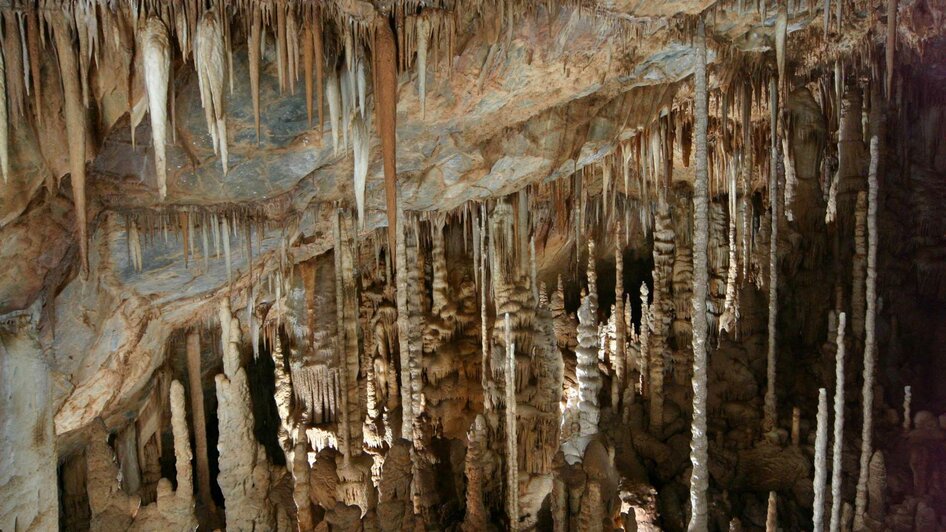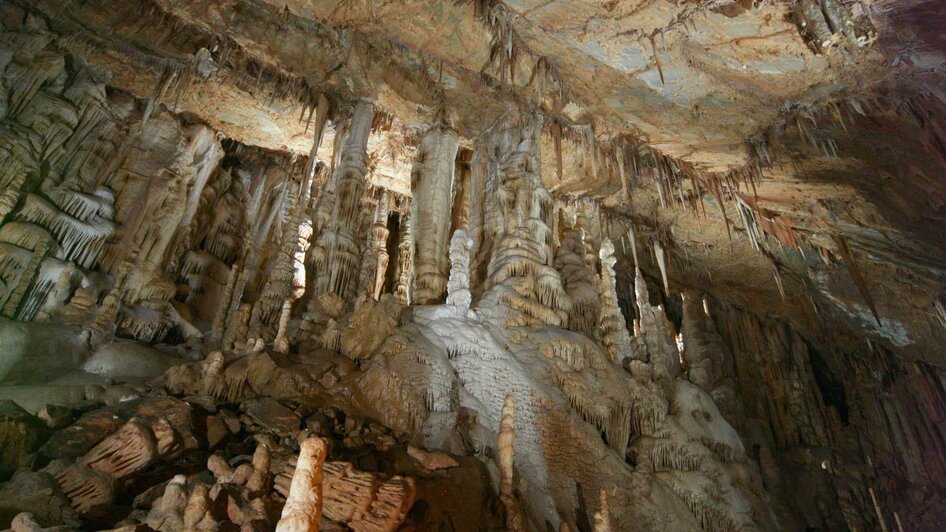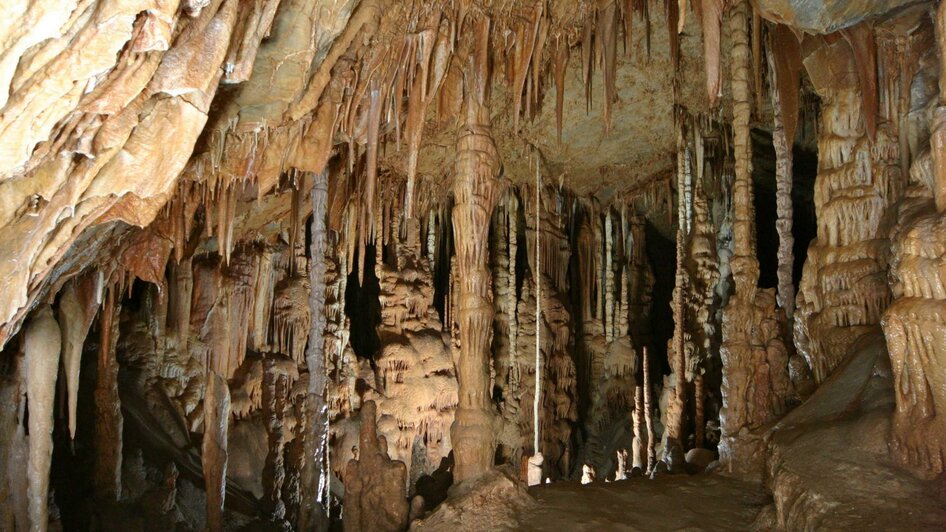Katerloch
WeizStalactite richest cave in Austria
The Katerloch
Let yourself be carried away into an underground world and learn everything there is to know about the cave and the researchers who dedicated their lives to it.
In one of the largest halls, the Fantasy Hall, which is now easily accessible through a sophisticated system of ladders and steps, there are expressive figures, fine sintered corals, wafer-thin, white and colored curtains, crystal-clear crystals and sparkling crystal columns in the middle of a true jungle of around 4,000 stalactite structures. Massive limestone formations and numerous bones found by bears create the image of a prehistoric age untouched by humans.
The Katerloch is probably known even earlier than the nearby Grasslhöhle, which was discovered around 1750 after its entrance was broken open by a tree and was first mentioned in 1816. In comparison, the entrance to the Katerloch (20 meters wide, 10 meters high) was much larger and easily recognizable from the outside.
A wealth of stalactites in perfectly beautiful shapes
From the fantasy hall you can reach the great discoveries of 1955, the magic realm and the seaside paradise, whose bizarre variety, rich in shapes, can hardly be described verbally. At the lowest point, alabaster-white stalagmites and sintered islands grow up out of the turquoise-green shimmering water surface of a cave landscape, framed by splendid bank walls. Like an oversized script, the beauty of the cave is completed here. Looking at eternal creative forces gives the visitor a happy contemplation, lets you forget everyday life and stimulates meditative thinking.
The cave explorers
Hermann and Regina Hofer
The researcher couple Hermann and Regina Hofer lived and worked during the first opening phase of the cave for a year and a half at 5 ° degrees, 98% humidity and 100 meters below the surface of the earth. In total, the two dedicated 50 years of their lives to the “Project Katerloch”. The unshakable belief in their goal was what made the two move hundreds of tons of rock with their bare hands to “lift” this underground treasure. Regina Hofer died in 1995 at the age of 83. Hermann Hofer died in 2003 at the age of 95. Two years before his death in 2003, Hermann Hofer transferred responsibility for the Katerloch research facility to Fritz Geissler.
April till October
ONLY BY PRIOR PHONE REGISTRATION (Tel. +436644853420)
Dear guests, opening hours are subject to change, for your safety contact the establishment directly.
Route from Weiz (approx. 11km - 25 min.)
Weiz-South/Circle - Follow signs to Katerloch/Grasslhöhle - Weiz/Main Square - Göttelsberg - Turn off to Leska - Haselbach - Dürntal - Turn off Katerloch/Grasslhöhle - Katerloch
Route from Passail (approx. 11km - 25 min)
Passail/Main Square - Direction Weiz - Turn off to Haufenreith - Direction Weiz - before Dürntal - Turn off Katerloch/Grasslhöhle - Katerloch
Entrance fee:
€ 20 per person
Discounts:
upon presentation of the following ID cards valid for the current year:
Minus 20%: family pass
Minus 10%: Naturefriends pass
Minus 10%: Alpine Club ID
Minus 10%: Austrian tourist club
Minus 10%: Kolping Card
Minus 20%: cave club
Discount for group bookings (clubs etc.):
Minus 10%: from 20 collectively paid admissions
Minus 15%: from 30 collectively paid admissions
Additional Information
Included services
The visitor completes a tour path of about one kilometer, with a height difference of 135m, over serpentine paths, massive iron staircases, and 400 steps.
Through an imposing cave portal, one enters the entrance hall that descends inward, featuring powerful, moss-covered, and algae-overgrown sinter columns. The largest column is 22m high and has a circumference of 46m. From the "lookout hall," the view drops into the 45m deep abyss of the "Martel Dome."
One of the largest halls is the "Fantasy Hall," measuring 120m in length, 85m in width, and 20m in height. Here lies a true jungle of around 4,000 large stalagmite structures with particularly expressive figures: One finds fine limestone corals, gossamer-thin, white and colored curtains, crystal-clear crystals, and sparkling crystal columns. Numerous bone finds from cave bears complete the picture of an untouched prehistoric time by humans. Today, the entire cave is easily accessible via a sophisticated system of stairs and steps.
From the "Fantasy Hall," one reaches further significant discoveries made by the explorer couple Hermann and Regina Hofer in 1955:
The "Magic Realm" and the "Lake Paradise," whose richly shaped, bizarre diversity is almost impossible to describe verbally. At the lowest point, alabaster-white stalagmites and sinter islands rise from the turquoise-green shimmering water surface of a cave lake landscape, framed by magnificent riverbank walls. As if created after an oversized script, the beauty of Austria's richest stalactite show cave is completed here.
Requirements
- PHONE PRE-REGISTRATION (Tel. +436644853420)
- Tours take place with a minimum of 9 people (for 1-8 people: connection to existing groups of 9 people is possible or tour for an additional fee)
- Children: minimum age 8 years
- general physical and mental fitness (for a total distance of 1km; 135 meters of elevation gain / approx. 400 steps; 2 hours)
- no alcohol or drug use before the cave tour
- sturdy footwear (e.g. sneakers, hiking boots, shoes with non-slip soles)
- warm clothing adapted to a cave temperature of 5° C (In case of emergency, there are some jackets and shoes available for borrowing)
- hat/cap recommended
- Bags, backpacks, umbrellas, sticks, cameras, mobile phones must remain outside the cave (Photos in front of the cave entrance are of course allowed)
- Due to Covid-19: bring (robust, warm) gloves
- Due to Covid-19: bring mouth protection
Good to know
For safety reasons, photography & filming in the cave is NOT permitted.
Pets, alcoholic beverages, backpacks, bags of any kind (child carriers, messenger bags, handbags), umbrellas, sticks
Opening hours
April to October
ONLY BY TELEPHONIC RESERVATION (Tel. +436644853420)
